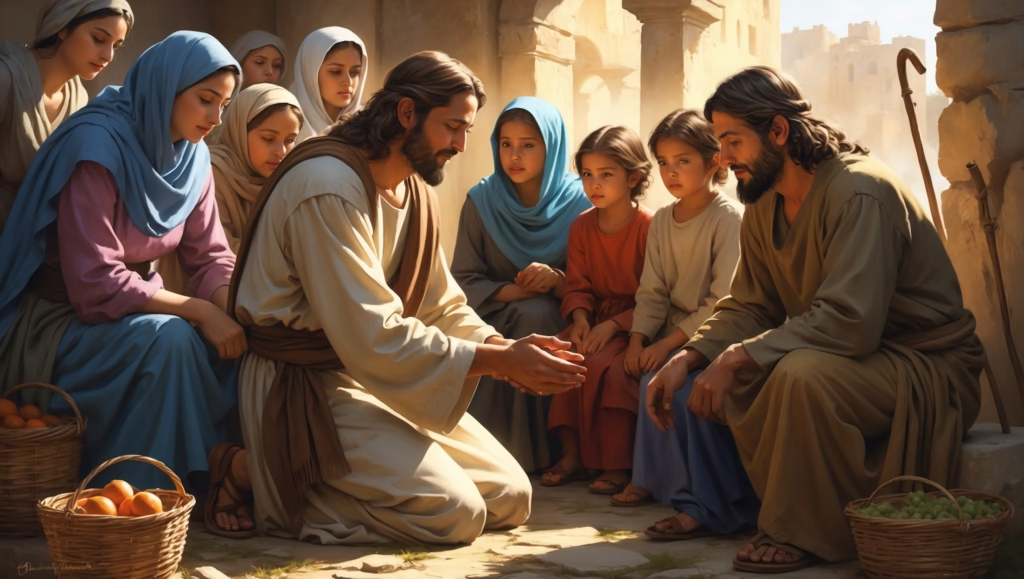Introduction
A defining characteristic of Jesus’ ministry was His intentional focus on society’s most vulnerable and overlooked. In a world structured by social hierarchies, religious rules, and cultural prejudices, Jesus consistently reached out to those marginalized by society. His actions demonstrated the depth of God’s love and highlighted that His mission was not limited to the powerful, wealthy, or socially esteemed. Through His ministry, He revealed that God’s kingdom values every individual, regardless of status or circumstance.
The marginalized of Jesus’ time included widows, orphans, lepers, tax collectors, the sick, and social outcasts. By engaging with them, He challenged societal norms and modeled a new standard of compassion and inclusivity for His followers.

Examples from Scripture
Caring for the Poor and Sick
Jesus’ ministry included physical acts of care for the poor and sick. He healed lepers, restored sight to the blind, and fed multitudes of hungry people. These acts were not just miracles of power; they were demonstrations of God’s mercy toward those whom society often ignored. By addressing both physical and spiritual needs, Jesus showed that compassion encompasses the whole person.
Welcoming Social Outcasts
Society marginalized groups such as tax collectors, prostitutes, and Samaritans. Jesus approached these individuals with dignity and respect, often breaking cultural and religious taboos. His interactions with Zacchaeus, a tax collector, and the Samaritan woman at the well illustrate His commitment to inclusion and the transformative power of His message.
Supporting Vulnerable Women and Children
Women and children, often lacking protection and social voice, received special attention from Jesus. He defended women caught in sin, blessed children, and ensured they had a place in His teachings. By doing so, He affirmed their worth and countered cultural norms that minimized their value.
Lessons on Inclusion
Breaking Social Barriers
Jesus consistently challenged societal expectations. By associating with lepers, sinners, and the economically disadvantaged, He demonstrated that God’s love transcends human prejudices. Followers of Christ are called to break down barriers of race, class, and status in order to reflect this inclusive love.
Demonstrating Unconditional Love
Jesus’ outreach was motivated by compassion, not obligation. His love was proactive and unconditional, seeking to restore dignity, hope, and connection. This serves as a model for believers to extend care without judgment or preference.
Empowering the Vulnerable
Through healing, teaching, and inclusion, Jesus empowered the marginalized. He gave them voice, value, and opportunity to participate in God’s kingdom. His approach encourages modern Christians to actively advocate for those whose voices are silenced or ignored.
Modern Application
Advocacy and Social Justice
Today, believers can emulate Jesus by advocating for marginalized communities, including refugees, the homeless, victims of discrimination, and those living in poverty. Christian compassion calls for action that addresses systemic barriers and promotes equality.
Volunteering and Service
Practical service, such as providing food, education, medical care, and mentorship, reflects Jesus’ model of hands-on compassion. Engaging with communities in need fosters empathy and aligns actions with faith.
Building Inclusive Communities
Jesus’ ministry encourages believers to create spaces where all feel welcomed and valued. Churches, schools, and social programs can embody this principle by embracing diversity and ensuring that marginalized voices are heard and respected.
Personal Transformation
Engaging with the marginalized transforms not only those served but also the servant. Developing empathy, humility, and a heart for justice aligns believers with Jesus’ mission and strengthens spiritual growth.
Conclusion
Jesus’ compassionate outreach to the marginalized illustrates the heart of God for the overlooked and oppressed. His ministry offers timeless lessons on inclusion, mercy, and service, calling believers to break social barriers, advocate for justice, and extend unconditional love. Following Jesus means actively engaging with the vulnerable, restoring dignity, and reflecting God’s kingdom on earth through both action and attitude. His example challenges modern society to value every individual, demonstrating that true faith is measured by how we serve and love those at the margins.









